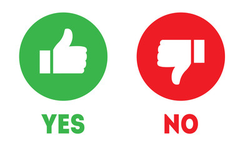📧 In Compliance Law, the political authority must clearly tell to the firm the extent of its power; if not the company will pass from the status of executive to the one of legislator
ComplianceTech® ↗️ Pour lire ce billet en français, veuillez cliquer sur le drapeau français

► Compliance: being in principle clear in the powers that the political authority gives or refuses to companies
On May 28, 2021, the Federal Agency published guidelines on how companies could or could not compel their employees with regard to vaccination, with regard to civil rights and freedoms, especially religious freedoms, of workers, especially those who say they don't want to be (➡️📝EEOC, EEOC Issues Updated COVID-19 Technical Assistance, May 28, 2021). The question is to strike a balance between the two.
It is often said that "Common Law" is casuistic and that Civil Law lays down principles. In this health crisis, we can see rather the opposite. American Law, which is very different from British Law, arises from "agencies", which speak clearly and quickly. The assertion is clear and plain. The document is two pages long. The principle is fixed: it is the principle of a power for the company to force to the vaccination. With one exception: the right for a person to request accommodations (undoubtedly teleworking) if this does not place too heavy a burden on the employer. As a result, on June 9, 2021, The New York Times headlines directly and simply on the principle: "yes, your employer can require you to be vaccinated" (➡️📝New York Times, Yes, your employer can require you to be vaccinated, June 9, 2021).
Isn't this always how the "qualities" of "Continental Law" are praised? In times of crisis, proceeding in principle: "authorized / prohibited" then (because any principle supports exceptions) say one or two exceptions, simple and the mode of operation. No more.
More generally, because the public authority must keep the normative authority for itself, it must clearly state what the company has the power to do in principle: yes or no. It is in a second level that it can deploy "Compliance tools", in the political decision thus adopted. In "Compliance by Design", this is essential, because otherwise the company will only be able to invent, under cover of technical casuistry, principles (on this dimension, see Cécile Granier, ➡️📝The normative originality of Compliance by Design, in ➡️📕"Compliance Tools", 2021). And the company, thus left to itself, will have great pleasure and interest in doing so. Who doesn't appreciate to become a Legislator?
comments are disabled for this article